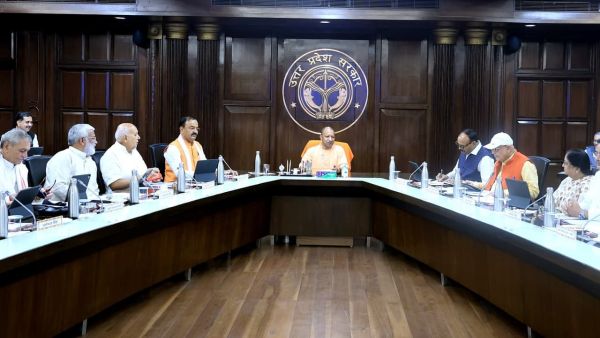

Lucknow, August 9 : In Uttar Pradesh, under the leadership of Chief Minister Yogi Adityanath, a new era has begun in the field of education. From primary to higher education, medical, and vocational training, the state government has brought historic changes to the education framework through planned reforms, technological innovations, and public–private partnerships.
Initiatives like Operation Kayakalp and Project Alankar have equipped government schools with modern facilities, while in higher education, along with new initiatives, older institutions are also being improved. KGMU’s NAAC A++ accreditation stands as a milestone, earning higher education new national recognition.
Moreover, from the expansion of medical, knowledge city, and hi-tech education to free coaching for competitive exams and vocational training, the aim is to ensure that every student of the state has access to quality education, employment-oriented skills, and opportunities matching global standards.
King George’s Medical University (KGMU) has secured an A++ grade in NAAC’s latest evaluation, achieving a CGPA of 3.67. NAAC’s team inspected KGMU from July 31 to August 2 and awarded high scores in various criteria’s.
Due to the efforts of the state government, transparency, technological advancement, and better resources have been provided in medical education, directly impacting the performance of institutions like KGMU. This achievement is giving Uttar Pradesh new recognition at the national level in medical education.
The state aims for 25% of its colleges to achieve NAAC accreditation by 2025–26, with nearly 1,000 institutions already shortlisted. Additionally, under provisions allowing private sector participation, several universities have been recognized. As part of this initiative, Unnao has become home to the country’s first AI-augmented university, Chandigarh University.
Recently, under the leadership of the Chief Minister, the cabinet approved the ‘Bharat Ratna Shri Atal Bihari Vajpayee–Chevening Uttar Pradesh State Government Scholarship Scheme’. This scheme will provide meritorious students of the state the opportunity to pursue higher education in the United Kingdom (UK).
This expansion is bringing smart classes, digital learning, sports, and English-medium education to students. To provide quality education to children of daily wagers, Atal Residential Schools are being run in all 18 divisions, while for girls, residential education is being provided through Kasturba Gandhi Schools.
Over the past eight years, Uttar Pradesh has transformed medical education and health infrastructure. So far, 80 medical colleges are operational in the state. A new AYUSH university has been established in Gorakhpur. On the other hand, unique efforts have been made in tech education, under which Knowledge City development plans are in place in several districts, including Kanpur and Gorakhpur. Their aim is to transform Uttar Pradesh into a knowledge-based economy and set global standards in higher education and research.
The CM Abhyuday Yojana of the Social Welfare Department is continuously fulfilling CM Yogi Adityanath’s resolve to provide every possible assistance to the youth of Uttar Pradesh in preparing for competitive examinations.
Thousands of students across the state have cracked various competitive exams through this scheme. For talented youth from rural and poor backgrounds, this scheme has emerged as a new ray of hope. Through this scheme, the Yogi government is providing free coaching, high-quality education, and all necessary resources for preparation of competitive exams, enabling them to succeed in exams like UPSC, PCS, JEE, and NEET. The Yogi government is successfully running these initiatives in all 75 districts of the state, with around 166 centres currently operational.
In the past eight years, the Uttar Pradesh government has revived traditional industries. The state government is distributing smartphones and tablets to empower 2 crore youth digitally, with 50 lakh students already benefiting from the initiative.
In addition, with the cooperation of Tata Technologies, 150 government Industrial Training Institutes (ITIs) have been connected with new-age technology to provide training in line with industry and market demand. Nearly 400 government and 3,000 private ITIs are operational in the state, providing training at minimal fees.
The government is also giving scholarships and other incentives to students studying in private ITIs. Furthermore, over 120 polytechnics in the state are now planned to be upgraded with the help of Tata Technologies.
Since 2017, Operation Kayakalp has improved the basic infrastructure of government schools. Basic facilities in schools have increased from 36% to 96%, libraries have been established in 1.32 lakh schools, and 15.37 crore free textbooks have been distributed. Under Project Alankar, 2,441 secondary government schools have been upgraded to meet 35 infrastructure standards, including smart classes, labs, libraries, and working environments. This has resulted in a 23% increase in enrolment in government secondary schools and improved attendance in primary schools.
In addition, to ensure quality education and holistic development for students from poor and underprivileged backgrounds, the state government has introduced English-medium education in selected secondary schools.Many government schools have also adopted the NCERT-based syllabus to provide students with uniform and high-quality education.